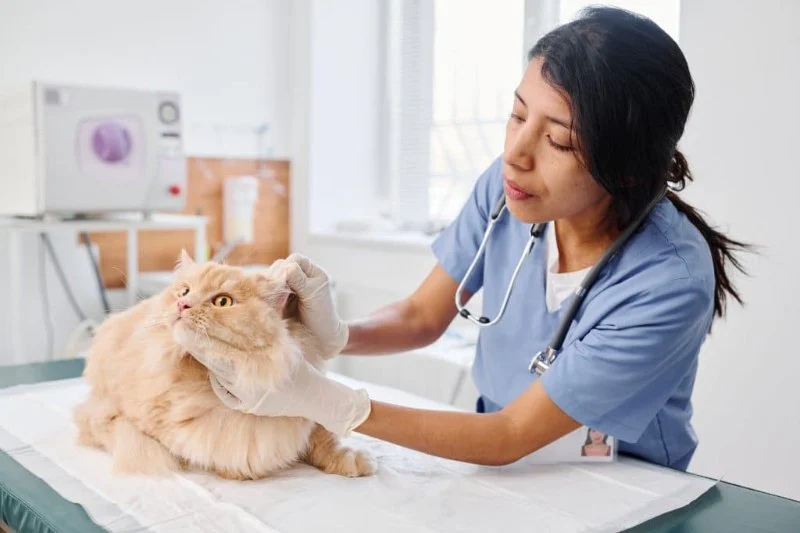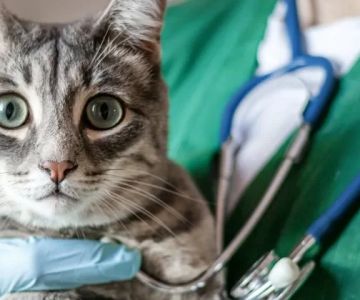
The Best Pet Health Insurance for Cats: A Comparison
When it comes to ensuring the health and well-being of your cat, pet health insurance is a crucial consideration. It can help manage the cost of unexpected veterinary expenses, providing peace of mind. With so many options available, choosing the best pet insurance for your cat can be overwhelming. In this article, we will compare some of the top pet health insurance providers and help you make an informed decision for your feline friend.
- Understanding Pet Health Insurance
- Factors to Consider When Choosing Pet Insurance
- Top Pet Health Insurance Plans for Cats
- How to Apply for Pet Health Insurance
- Real-Life Case Studies
1. Understanding Pet Health Insurance
Pet health insurance is designed to help pet owners manage the costs of veterinary care. It typically covers a variety of treatments, including emergency care, surgeries, and preventative services. Pet insurance works similarly to human health insurance by reimbursing the pet owner for eligible medical expenses, often after the owner has paid an upfront deductible.

New Rochelle Animal Hospital
New RochelleWestchester CountyNew York
98 North Ave, New Rochelle, NY 10801, USA
1.1 Types of Pet Health Insurance
There are several types of pet health insurance plans available, including:
- Accident-Only Coverage: Covers only accidents like broken bones or injuries caused by accidents.
- Comprehensive Coverage: Includes coverage for both accidents and illnesses, offering a broader range of protection.
- Wellness Plans: These plans cover preventive care, such as vaccinations, checkups, and routine treatments.
2. Factors to Consider When Choosing Pet Insurance
Before choosing a pet health insurance provider, it's important to consider several key factors to ensure you're getting the best plan for your cat's needs:
2.1 Coverage Options
Different providers offer different levels of coverage. Some plans may cover only accidents, while others include coverage for a wide range of illnesses and preventative care. It's essential to choose a plan that fits your cat's health history and potential risks.
2.2 Deductibles and Reimbursement Rates
Insurance plans vary in terms of deductibles (the amount you pay out-of-pocket before the insurance kicks in) and reimbursement rates (the percentage of eligible expenses the insurer will cover). Make sure to compare these factors to find the best value for your cat’s care.
2.3 Waiting Periods
Most pet insurance providers impose waiting periods before coverage kicks in for certain conditions. Be sure to check how long you must wait before your pet’s coverage is active, especially for pre-existing conditions or specific treatments like surgeries.
3. Top Pet Health Insurance Plans for Cats
Here are some of the best pet health insurance providers for cats, each with its unique offerings:
3.1 Healthy Paws
Healthy Paws is a popular option known for its comprehensive coverage. It covers accidents, illnesses, and treatments like surgeries, cancer care, and hospitalization. Their customer service is highly rated, and they offer a simple claims process.
3.2 Trupanion
Trupanion is well-known for its straightforward coverage and no payout limits. Their policies cover almost everything, including surgeries, diagnostics, and injuries. They also offer a unique feature of directly paying the vet at the time of treatment.
3.3 Pets Best
Pets Best offers customizable plans, allowing pet owners to choose from accident-only, illness-only, or comprehensive coverage. Their policies also include wellness plans that cover routine care like vaccinations, checkups, and flea treatments.
4. How to Apply for Pet Health Insurance
Applying for pet health insurance is a straightforward process, and most providers offer online applications. Here’s a general guide on how to apply:
- Choose a Plan: Research the available plans and select one that fits your needs and budget.
- Submit Your Cat’s Information: You will need to provide basic information about your cat, including breed, age, and health history.
- Provide Payment Information: Most pet insurance plans require monthly or annual premium payments.
- Receive Confirmation: Once your application is approved, you will receive your policy and be able to start using your insurance.
5. Real-Life Case Studies
Many cat owners have benefited from pet health insurance. Here are some examples:
5.1 Case Study: Emergency Surgery
A cat named Whiskers experienced a sudden health issue that required emergency surgery. With the help of pet insurance from Healthy Paws, the owner was able to cover the majority of the surgery costs, ensuring that Whiskers received the best possible care without the financial strain.
5.2 Case Study: Chronic Illness Coverage
Another cat, Felix, had a chronic illness that required ongoing treatments. With Trupanion’s comprehensive coverage, Felix’s owner was able to manage his illness effectively without worrying about costly treatments and medications.
If you’re ready to choose the right insurance for your cat or need more information, visit Omnia Pet for the best products, services, and recommendations for your pet's health care needs.








 Greene Street Animal Care4.0 (67 reviews)
Greene Street Animal Care4.0 (67 reviews) Bond Vet - Long Island City4.0 (132 reviews)
Bond Vet - Long Island City4.0 (132 reviews) Petco4.0 (885 reviews)
Petco4.0 (885 reviews) Boston Veterinary Clinic4.0 (119 reviews)
Boston Veterinary Clinic4.0 (119 reviews) Banfield Pet Hospital3.0 (80 reviews)
Banfield Pet Hospital3.0 (80 reviews) SPS Coral Store3.0 (18 reviews)
SPS Coral Store3.0 (18 reviews) The Science of a Kitten's Digestive System: How It Works and What You Need to Know
The Science of a Kitten's Digestive System: How It Works and What You Need to Know The Best Diet for a Pet Parrot: Seeds, Pellets, and Fresh Foods
The Best Diet for a Pet Parrot: Seeds, Pellets, and Fresh Foods How to Celebrate Your Cat's Birthday - Fun Ideas for Your Feline Friend
How to Celebrate Your Cat's Birthday - Fun Ideas for Your Feline Friend Best Ways to Help Your Local Animal Shelter Without Donating Money
Best Ways to Help Your Local Animal Shelter Without Donating Money Best Wet Food for Kittens Needing Extra Calories – Top Brands & Tips
Best Wet Food for Kittens Needing Extra Calories – Top Brands & Tips How to Stop a Kitten from Suckling on Blankets
How to Stop a Kitten from Suckling on Blankets